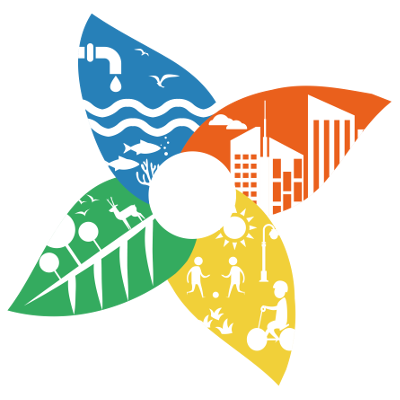As part of the NATURVATION project, Utrecht has been examining nature-based solutions projects in the city. The Roerplein Pocket Park is one of our best examples of a successful citizen-led intervention, and began as an initiative by a local social entrepreneur to turn a paved public square into a park.
In an effort to support local urban green space interventions, the city of Utrecht developed the Neighborhood Green Plan project, providing funding and support for such projects. As Jeron Schenkels from the Utrecht municipality explained, “Initially, we wanted to get experts like landscape architects, ecologists, and social workers to analyse potentials and vulnerabilities in neighborhoods. But we didn’t choose to do this because we wanted the money to go directly to the citizens.” In 2015, the Roerplein Pocket Park was proposed.
The small park was built within a highly paved neighborhood with little green space, and is managed by local citizens with the support of the municipality. Citizens of the affected neighborhood are sometimes distrustful of the city government, so a female social entrepreneur led the project, supported by a local environmental NGO. As Anne-Mette van Lieshout (the entrepreneur and landscape architect) stated, “It was not the municipality organising something, it was us, enthusiastic women that [Roerplein residents] had seen around before. Because in these types of neighborhoods, they’ll automatically go into resistance when they even hear the word municipality.”
The Neighborhood Green Plan was successful in other neighbourhoods, as well, and each of the 10 funded neighborhoods in Utrecht developed at least 10 initiatives based on resident proposals. One third of these projects are still managed by citizens, leading to higher rates of success. Green spaces are likely to be vandalised and more likely to be actively used when they are developed together with residents, so community management was a very important criterion for the city. The Roerplein park is still managed by community volunteers.
This project created a bridge between the municipality and a neighborhood that is often distrusting of local government. This has led to increased social cohesion and citizen engagement in Utrecht. We were able to give a bit of power back to the people, which is always our goal. Then, of course, there are the other benefits like reduced urban heat stress and enhanced neighbourhood attractiveness.
One issue that we still have is encouraging long-term engagement. There is a lack of interest in volunteering for garden maintenance, which is necessary. We need to find a way to either promote volunteering or reduce dependence on volunteers. Overall, though, Roerplein Pocket Park was a successful initiative that improved social cohesion in our city and demonstrated that nature-based solutions do not always come from the top-down.
Erin Danford is working as an intern at ICLEI Europe and supporting the Naturvation project
